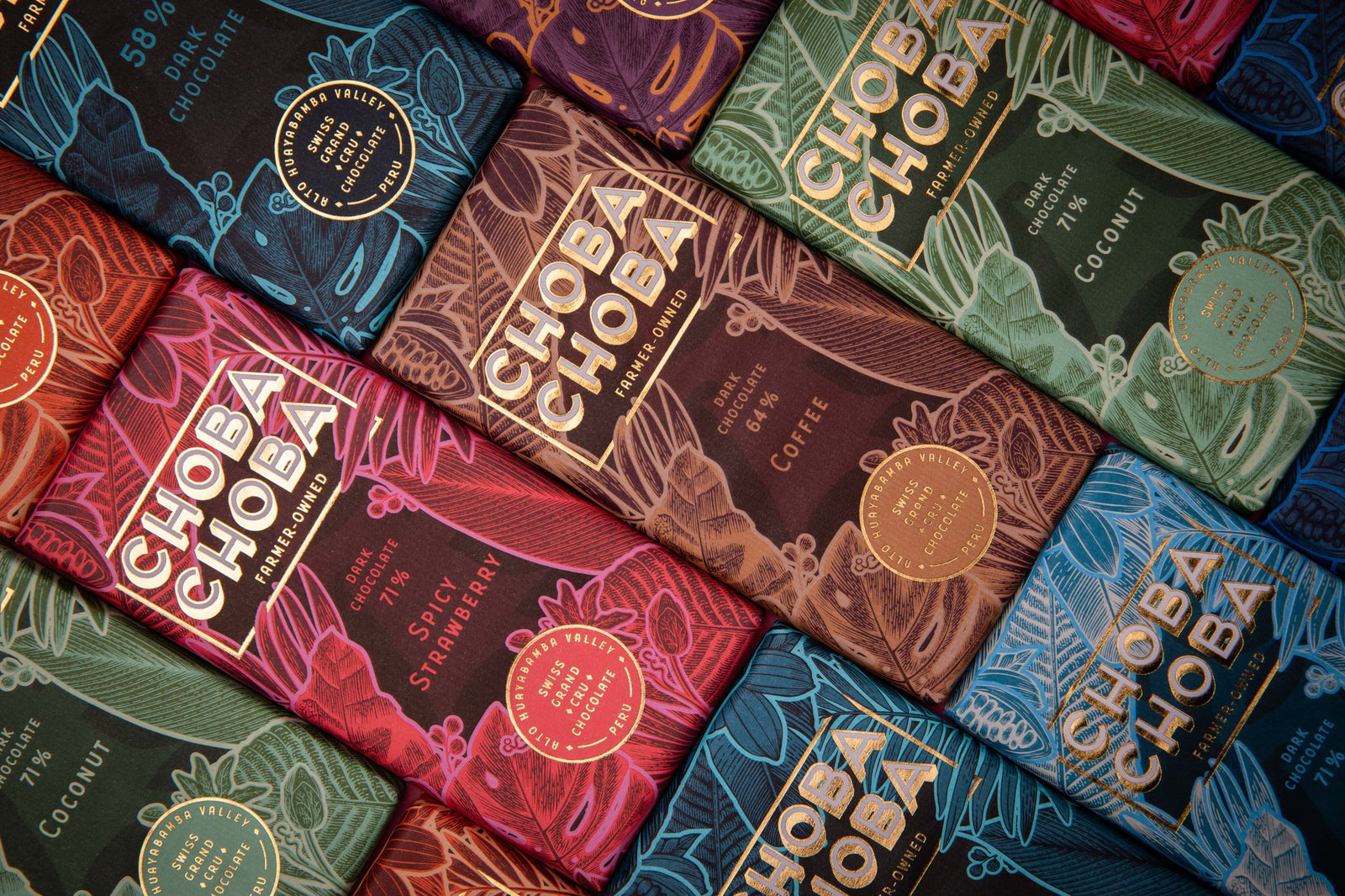120 hectares: This is the total area of cocoa plantations of the forty Choba Choba farming families. Small plots (the most modest is barely 2000m²) spread all along the Huayabamba River. Here, in the Peruvian highlands of the Amazon, we grow, harvest, ferment and dry our cocoa. The Huayabamba Valley is a valuable terroir, whose soil and climate conditions are particularly suitable for cocoa cultivation, but also harbor a unique biodiversity and real natural treasures.
Nestled between the foothills of the Andes and the Amazon basin, the region is home to the Rio Abiseo National Park, at the heart of which is the archaeological site of Gran Pajatén. This has earned the park recognition as a UNESCO World Heritage Site in both natural and cultural terms - as has Machu Picchu. Hardly forty sites in the world can boast of this double recognition. There is little denying that the region is a treasure to be protected. In this sense, it is crucial to ensure sustainable agricultural activity on the outskirts of the park, especially in a region where cocoa cultivation is the main source of income for thousands of families. This goal is central to the Choba Choba project.
In 2016, it was with great joy and pride that we welcomed UNESCO's decision to create the Gran Pajatén Biosphere Reserve, covering an area of over 2.5 million hectares. This designation is given to areas that combine biodiversity protection and sustainable development. Biosphere Reserves consist of three zones: the core zone (in our case the Rio Abiseo National Park), the buffer zone, where research and scientific education activities are allowed, and finally the transition zone, where human activities must be sustainable both socio-culturally and ecologically. As our cocoa plantations are located in the transition zone of the reserve, we have a responsibility and duty to ensure ecologically sustainable cocoa production. This is what we strive to achieve through our agroforestry practices on a daily basis. However, despite the fact that many of our neighbors practice organic farming principles, many plots in the region are still conventionally farmed.
In 2023 we welcomed some of these farmers to our cooperative. We accompany them in their conversion to organic farming and agroecological practices. As Choba Choba grows, we are able to welcome new members each year, fulfilling our role as guardians of the Gran Pajatén Biosphere Reserve. But to fully embrace that responsibility, our action must go beyond the cocoa plantations, as the reserve continues to be threatened by illegal logging. For this reason, the Choba Choba Foundation supports three conservation concessions in the buffer zone, covering a total area of almost 10,000 hectares. Through this project we are making our contribution to the global effort to protect nature.
It's just a small step from making chocolate to protecting our world heritage.
*In December 2022, the Convention on Biological Diversity (COP15) in Montreal resulted in a historic commitment that aims, among other things, to protect 30% of land area and oceans by 2030."




Leave a comment (all fields required)